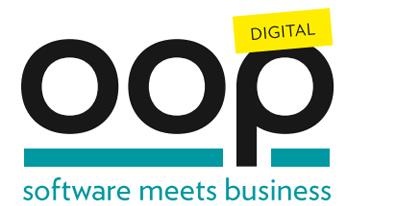
Konferenzprogramm
Die im Konferenzprogramm der OOP 2022 Digital angegebenen Uhrzeiten entsprechen der Central European Time (CET).
Unser Programm gibt es auch als praktische PDF-Datei >>Zum Download
C++17 Polymorphic Memory Resources (pmr) and STL Containers for Embedded Applications
For many embedded C++ applications, compliance with the AUTOSAR or Misra rules is required. Among them is AUTOSAR Rule A18-5-5 which does not allow memory allocations with new. Since new and delete violate A18-5-5, the default STL containers must not be used in applications requiring AUTOSAR compliance. This holds for many embedded applications. With the allocators available since C++17 in the namespace std::pmr (polymorphic memory resources) these requirements can often be satisfied.
Target Audience: Architects, Developers, Project Leader
Prerequisites: Good C++ knowledge
Level: Advanced
Extended Abstract
For many embedded C++ applications, compliance with the AUTOSAR or Misra rules is required. Among them is AUTOSAR Rule A18-5-5.
Memory management functions shall ensure the following:
(a) deterministic behavior resulting with the existence of worst-case execution time,
(b) avoiding memory fragmentation,
(c) avoid running out of memory,
(d) avoiding mismatched allocations or deallocations,
(e) no dependence on non-deterministic calls to kernel.
This rule has far-reaching consequences, because per default the C++ standard library containers allocate their memory with new and free it with delete. These calls
• do not have deterministic execution times.
• can cause memory fragmentation.
Since new and delete violate A18-5-5, the default STL containers must not be used in applications requiring AUTOSAR compliance. This holds for many embedded applications.
With the allocators available since C++17 in the namespace std::pmr (polymorphic memory resources) these requirements can often be satisfied. This means that, for the first time in the history of C++, the containers and algorithms of the C++ standard library can be used in applications that require AUTOSAR Rule A18-5-5.
Nach dem Studium der Mathematik an der Universität Tübingen und der FU Berlin war er an der Pädagogischen Hochschule Reutlingen in der Lehrerausbildung tätig und hat sich intensiv mit Mathematikdidaktik beschäftigt. Danach war er Software-Entwickler (v.a. für technische Anwendungen), bei einigen Firmen Leiter der Software-Abteilung, über 20 Jahre Professor an der Dualen Hochschule Lörrach, über 30 Jahre freiberuflicher Trainer für C, C++, C#, Speaker bei Konferenzen, Mitglied im DIN Normierungsausschuss Informationstechnik NI-22, usw.
Vortrag Teilen


